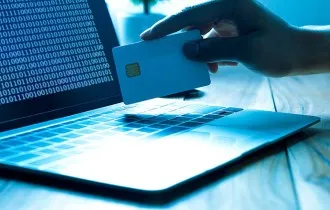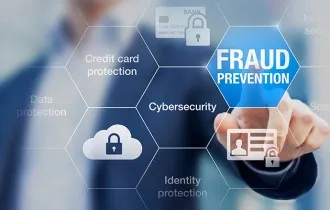Dwight was right – identity theft is not a joke (Opens in a new Window) (though Jim dressing up as Dwight is sure entertaining). And it’s only on the rise – according to the National Council on Identity Theft Protection (Opens in a new Window), fraud cases are up 70% from 2020.
More bad news: the average money lost on identity theft has nearly doubled since 2019.
But we're not here to scare you. Let's look at some ways to keep your information safe:
Be careful about what you share on social media
The National Council on Identity Theft points out that social media users are generally at a higher risk of identity theft. Why?
You're likely sharing information that fraudsters can use to steal your identity. Think - that photo of you in front of your house that includes your address, your status updates talking about how excited you are about your upcoming vacation (so thieves will know when your house will be empty)...not to mention your full name, maiden name, your parents' names. It's all information that's valuable to identity thieves.
Consider removing personal information from your social media accounts, be careful about the photos you share, and wait until you get home from your vacation to post those great shots of you on the beach with a margarita in hand.
Shred any documents containing sensitive information
Don’t just toss your old statements, applications, and other documents in the recycling when you’re done with them (though we do encourage you to recycle!). Not even that scrap of paper you wrote your account number down on. Because while you may not want to spend your evening digging through the garbage, thieves are more than happy to dumpster dive if it means they can get their hands on your private data.
Shred anything with account numbers, social security numbers, credit card numbers, or any other documents that contain private information before tossing it in the blue recycling bin.
Don’t share your social security number or account number with someone who contacts you via phone, email, or text
As your bank, we will never contact you and ask you for your social security number or account number. Fraudsters often claim to be someone they are not – such as your bank, your insurance agency, or even your grandson – to try to gain access to sensitive information from you.
Before providing any information, contact the company or individual using a phone number or email address that you find independently (Google is your friend!).
Protect your devices
Between your email, texts, and other apps, you’d be shocked what someone can learn about you if they get a hold of your phone.
Lock it down with a passcode.
Keep your anti-virus software on your computer up-to-date and ensure websites where you must enter private information has a URL with “https” and not just “http."
Switch to eStatements
Still getting paper statements in the mail? Make the switch. Not only will you help save the environment (just like recycling!), but you’ll keep your information much safer. Think about it – there’s a password on your online banking, but there’s no password on your mailbox. It doesn’t take a sophisticated criminal to swipe your mail.
Monitor your credit report
Did you know you can get your credit report for free from
annualcreditreport.com (Opens in a new Window)? You can get a free copy of your credit report every four months from one of the three major credit reporting agencies. Review it to ensure no accounts you don’t recognize have been opened with your SSN and that nothing on the report looks inaccurate.
Use mobile and online banking to monitor your accounts
Contactless delivery may be relatively new for groceries, restaurants, and retail stores, but banks have been offering it for years. Review all of your transactions right from your
phone, tablet, or computer (Opens in a new Window). You can even set up alerts for certain types or dollar amounts of transactions, or if your account balance reaches a certain threshold.
Report suspected fraud to your bank immediately
Okay, so you’ve reviewed your account and see some activity you don’t recognize. Now what? Let us know. You can send us a message right in our mobile app, call us at
888.842.0221, or email us at
info@incrediblebank.com. We’ll work with you to get it solved quickly.








